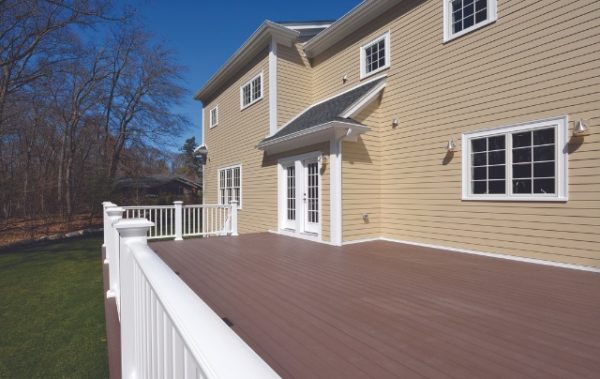The Issue of Licensing

 |
Evora Ritchie thought she had made a good choice of contractors when she hired the husband of a longtime friend to build an addition to her Stone Mountain home. Now, after months of incomplete and shoddy work and the expense of hiring another contractor to finish the botched job, Ritchie regrets her decision.
Knowing her, I trusted them, Ritchie says. To think I paid $40,000 to add a room, it makes me sick.
Ritchie says she learned, too late, that her contractor had no business license and no insurance. She fell victim to a hole in Georgias consumer protection lawsone that permits anyone to operate a residential contracting business without credentials.
Ritchie says she knew something was wrong almost immediately. The first two days he came with two guys to dig the footing, then he came again to do the cement work, she says. Then after that, it was like he showed up sometimes and didn’t show up sometimesand he didn’t call. Ritchie says the contractor disregarded the timetable he had given her for the job. Six weeks turned into four months, and he still wasnt done.
NO LICENSE REQUIRED
When you go to get your nails done or get your hair cut, those people are licensed by the state, says Gary Englebert, chief building inspector for DeKalb County. When you build a home, the guy who does the wiring is licensed, the guy who does the plumbing is licensed, the guy who does the heating and air thats all licensed. But the man who ties that all together and builds the home is not licensed.
Georgia is one of 20 states in the U.S. with no government-mandated licensing requirement. It is the only Southern state without such standards in place, according to Englebert.
Unlike a business license, which is issued by a city or county for a fee, a professional license would require the holder to meet established standards, such as having insurance.
As the General Assembly cranked into gear in January for the 2004 session, some legislators were working to create a professional licensing program for residential contractors. Even in states where basic competency is ensured through professional licensing, however, consumers should do their own research to verify that the contractor they hire is right for their projectand to protect themselves against unethical practices.
The big word of advice I always say is, if you dont do your homework, youre invariably going to fail, says Lou Alvarado, owner of Handy Husband and ethics committee chairman for the Atlanta chapter of the National Association of the Remodeling Industry (NARI). A professional licensing program may weed out incompetent workers, Alvarado says, but nothing proves excellence like reputation and longevity. Were all licensed drivers. But youre still going to get good ones along with bad ones, Alvarado says. Good contractors were here yesterday, and theyll be there tomorrow. A poor contractor, who knows where theyll be tomorrow?
 |
| Although she says she paid an extra $558 to have a glass skylight installed in the ceiling of the addition, Ritchie ended up with a plastic-dome skylight that she says continually drips due to condensation. |
CHECK REFERENCES
Reputable contractors should carry a local business license as well as insurance for personal liability, workers compensation and property damage. They should provide you with multiple referencesand potential customers should call those references. Check out two or three contractors, Alvarado advises. This is a business; its not a personal relationship. Ask him if he has won any awards; ask him if he belongs to any organizations. Ask the contractor for a physical location. Go see if they have a shop.
Although membership in a trade group doesnt necessarily ensure competency, it may provide some assurances. For example, members of NARI must agree to abide by a code of conduct. And through the Atlanta chapters ethics committee, dissatisfied customers can seek mediation to settle disputes. Were trying to oversee our members, Alvarado says. If the ethics committee determines that the contractor has not fulfilled all obligations, the committee can put pressures on the member business to complypressures such as placing the member in poor standing, requesting non-renewal of the membership or even working with the customer to develop documentation that could be used in small claims court. Certified Professional Home Builders are required to offer binding arbitration.
Executive director of NARIs Atlanta chapter, Vernon Thomas, says NARI is starting to put a greater emphasis than ever on consumer educationarming homeowners so they know what they are getting into when they hire a contractor. Since homeowners and their families typically live in the house while work is being done, trust is critical. Youre almost bringing in another part of the family for a few months. You have to trust them to take care of the home, he says. You cant always base [your choice] on the cheapest price. Theres more to it, especially when youre dealing with one of the largest investments most people make.
Thomas says choosing a NARI contractor is wise, because in addition to holding members to ethics standards, NARI checks its members background, insurance status and references.
| RED FLAGS TO LOOK FOR You can’t verify the name, address, telephone number or credentials of the remodeler. The salesperson tries to pressure you into signing a contract. The company or salesperson says your home will be used for advertising purposes so you will be given a “special, low rate.” The builder/remodeler tells you a special price is available only if you sign the contract “today.” No references are furnished. You are unable to verify the license or insurance information. You are asked to pay for the entire job in advance, or to pay in cash to a salesperson instead of by check or money order to the company itself. The company cannot be found in the telephone book, is not listed with the local Better Business Bureau, or with a local trade association, such as NARI, Greater Atlanta Home Builders Association or Home Builders Association of Georgia. The contractor does not offer, inform or extend notice of your right to cancel the contract within three days. Notification in writing of your Right of Recision is required by law. This grace period allows you to change your mind and declare the contract null and void without penalty (if the agreement was solicited at some place other than the contractor’s place of business or appropriate trade premises-in your home, for instance). If a bid is substantially lower than others, ask yourself why. Source: Tips compiled using information from the Governors Office of Consumer Affairs and National Association of the Remodeling Industry-Atlanta Chapter |
THE BEST DEFENSE:
A GOOD CONTRACT
Arbitration is an important tool to keep minor disagreements from mushrooming into expensive legal disputes. But the best defense is in the contract.
In retrospect, Ritchie realizes that her builders reluctance to provide a contract was a huge red flag. To build an addition to my home and a deck, he said he could do it for $27,950, Ritchie says. When we went to get it finalized, he said, Oh, you dont need a contract. Ritchie ended up typing a description of the room and a payment schedule for the six-week project$7,950 down, plus four payments of $5,000, as certain tasks were completed. The agreement lacked specifics, such as the grade of materials to be used, the order in which the work was to be completed and warrantees.
The most frequent consumer home improvement complaints, according to the Governors Office of Consumer Affairs, are cost overruns, missed deadlines and shoddy workmanship. Attorney Kevin Veler, the legal adviser to NARIs Atlanta chapter, says a well-written contract, and a consumers familiarity with it, can head off many problems before they start. If things do go wrong, try to resolve them directly with the contractor and then follow up conversations in writingeven if just with an e-mail.
So many people get into a he-said, I-said matter, and when you get to a judge, the judge has no background in this matter, Veler says. So make the follow-up notes as clear as possible, including details such as products to be installed and dates for completion. Remember, the goal is to get the work done, not win a lawsuit. Most of these matters are so small, that its not cost effective for an attorney to get involved, Veler says. The legal fees can be higher than the bill. Remember, also, that a contract works both waysthe homeowner has to stick to the agreement as well. Every time you make a change order, thats going to cause a delay, Veler says.
IF ALL ELSE FAILS
If discussion and documentation dont solve the problems, and arbitration through a trade group is not an option, then it may be time to consider terminating the contractbut only as a last resort. Termination may open the homeowner to legal proceedings, as well as the added cost of hiring a new contractor to finish the job. Hes got to get his profit, plus buy materials and maybe hire workers, Veler says. You might end up paying $5,000 for $3,000 worth of work. If youre at the point of terminating a contract, Id say, really, consult a lawyer, he says.
Fred Elsberry, president and CEO of the Better Business Bureau of Metropolitan Atlanta, says construction and remodeling is perennially one of the top five categories for inquiries and complaints. Of 535,000 total inquiries and complaints the agency received in 2003, more than 15,000 had to do with construction and remodeling. What we are really encouraging people to do is check these companies out before they hire them, he says.
| A HOME IMPROVEMENT CONTRACT SHOULD INCLUDE
– The date of the contract – The contractor’s full name, address, telephone number and business license number – Name, address, telephone number and professional license number of each subcontractor, where required – A complete description of all work to be done – A list of materials for the project in your contract, including size, color, model, brand name and product – An agreed-upon starting and completion date – The cost of the total project – A payment schedule showing the amount and date of each payment. The down payment should be no more than 25 percent of the contract price. Specify in the contract that you will withhold 10 percent of the total price until the job has been completed, you are satisfied with the work that has been done (at a minimum, you should require the contractor to provide an affidavit of completion), you have proof that all subcontractors and employees have been paid, and the city/county building inspection department has certified that all work was performed in accordance with code standards. – A warranty covering materials and workmanship for a minimum of one year. The warranty must be identified as either “full” or “limited.” The name and address of the party that will honor the warranty (contractor, distributor or manufacturer) must be identified. Make sure the time period for the warranty is specified. – Financing arrangements, and a cancellation clause if financing cannot be obtained -All verbal promises and a system for addressing change orders |
WHEN SHOPPING AROUND
When looking for a contractor to hire, protect yourself by following these guidelines:
Ask to see the contractor’s business license and then check with your county or city business license department to verify that it is valid.
Check the records at the local magistrate’s, state and superior courts to see whether any claims have been filed against the contractor or company. Check with the Better Business Bureau and the Governors Office of Consumer Affairs to see whether any complaints have been filed.
Ask if the contractor is a member of a professional or trade association, such as the Georgia or Atlanta chapter of the National Association of the Remodeling Industry, the Home Builders Association of Georgia or the Greater Atlanta Home Builders Association.
Ask to see a copy of the contractor’s insurance certificate or the name of the insurance carrier/agency and verify the coverage. Contractors should have personal liability, workers compensation and property damage insurance to protect customers from lawsuits if an accident happens on the customer’s property.
Compare construction costs by getting written, itemized estimates or bids from several contractors. Similar building specifications, materials and time frame for completion should be listed in each estimate.
Verify prices for building materials quoted in the estimate by contacting building supply companies. You may also ask the supply company about previous dealings with a prospective contractor.
Do not automatically select the lowest bid.
Request that the contractor apply for a building permit under the name of the business name or his name and not yours. This will protect you from any additional expense if the work does not comply with the building codes.
Consider asking the contractor to post a bond to assure payment to all subcontractors and suppliers for any sublet work, or require subcontractors to sign a lien waiver when payments are received. Be aware that any subcontractor or supplier who is not paid by the contractor may file a materialman’s lien (a legal claim) against your home.
A binding arbitration clause in the contract is also a good inclusion in the event a disagreement occurs. Arbitration may enable you to resolve disputes without costly litigation.
LEARN MORE
For more information on contractor-licensing legislation or standards set by specific groups, p
ease visit the following Web sites:
House Bill 109:
www.legis.state.ga.us/legis/2003_04/fulltext/hb109.htm
Georgia Consumers Guide to Home Improvements:
www2.state.ga.us/GaOCA/home1.htm
Atlanta Chapter of the National Association of the Remodeling Industrys tips on selecting contractor
www.nariatlanta.org/select.html
Certified Professional Home Builder program:
www.cphb.org
Greater Atlanta Home Builders Association:
www.atlantahomebuilders.com
Home Builders Association of Georgia:
www.hbag.org
LEGISLATIVE UPDATE
At the start of the 2004 legislation session, House Bill 109, which provides for the creation of a state licensing board for residential contractors and the terms for licensure, was in committee. If passed, the bill would require any person or entity it defined as a residential contractor to pass an examination in order to obtain a license.
The intent is to protect the public from individuals who are not knowledgeable of all the components of construction, says Rep. Roger Bruce (D-Atlanta), who is a co-sponsor of the bill. The individual who has a license has gone through a screening process, has gone through continuing education, and by having a license, we are saying that this individual has the knowledge to do this work.
But in its early form, the bill waived the examination for anyone already engaged in residential contracting as of July 1, 2004, and required licensing only for contractors involved in home improvement (or construction) projects that cost $30,000 or more. Bruce says he wants to lower that threshold to $5,000, or make the $30,000 threshold apply to the amount of work a contractor does in a year. I think that the legislators will be supportive of it, but I think there are some homebuilders that will not support it, Bruce says. The quality folks, I dont think it will bother them.
In the meantime, several cities and counties in the metro area were in the process of adopting their own licensing programs. The problem with that approach is that contractors would have to go through the licensing procedure each time they took on a project in a new city or county. The time and costs involved could put small but reputable companies out of business and clog county development departments with red tape.
It would be a nightmare, but something has to be done, says Englebert, who helped develop a proposed program for DeKalb County. If the state isnt going to do anything, then we as municipalities need to start doing it, and let everyone start screaming and push the state into doing it.

New kitchen products

Go green with your interior design

Howard’s Habitat

Award-Winning Kitchens, Baths, Interior Design and More

Atlanta’s NKBA Designs of Distinction 2019 Winners

100 Things to Know Before You Remodel

What’s the simplest way to upgrade your window treatments?







